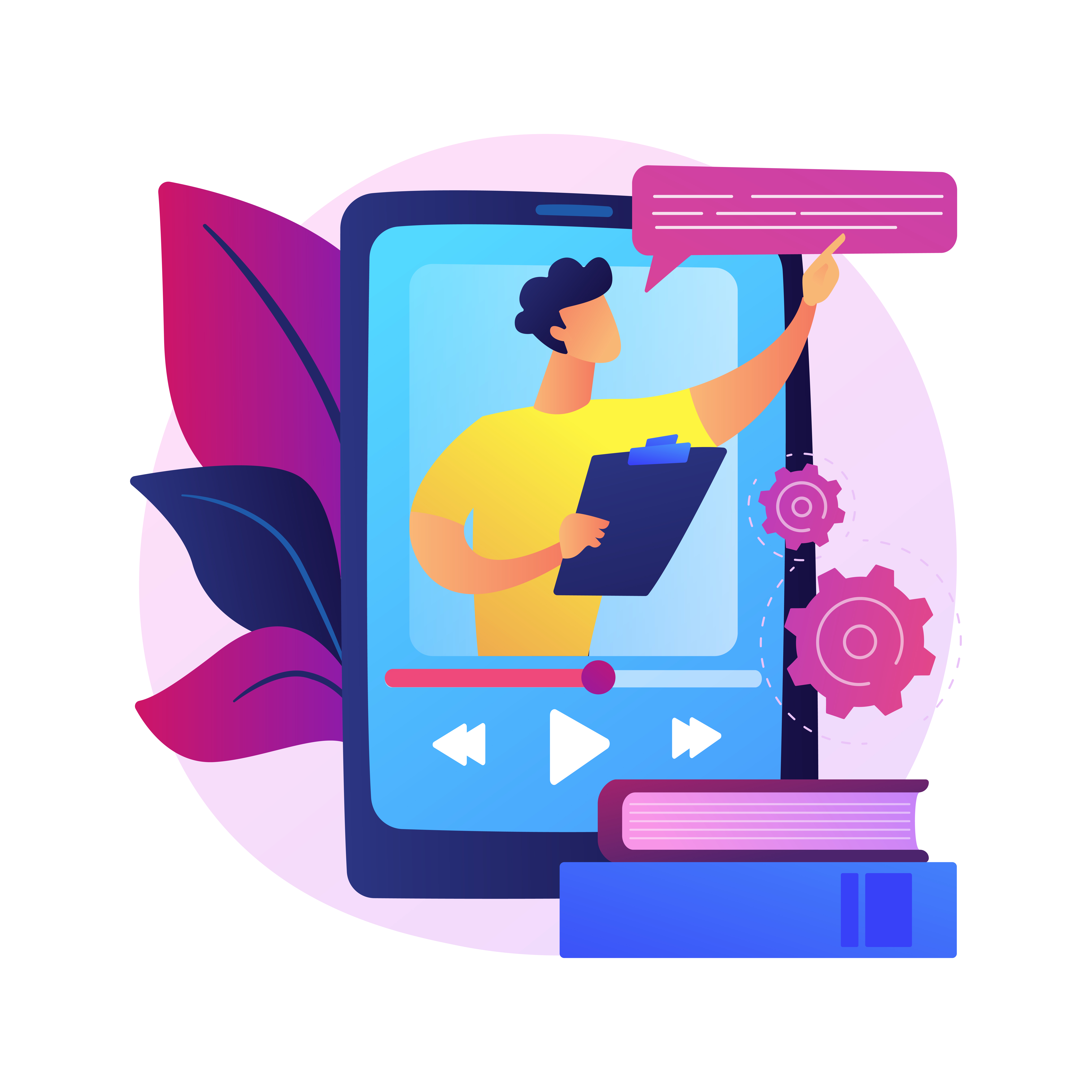7 Best Mobile Learning Platforms 2025
Native apps, offline mode, and microlearning designed for the 84% of employees who want training on smartphones.
Explore PlatformsWhy Mobile Learning Transforms Employee Training
The workforce has fundamentally shifted how it consumes content. 84% of employees want training on mobile devices, yet most corporate learning platforms remain desktop-first experiences awkwardly adapted for smaller screens. True mobile learning platforms deliver native experiences optimized for smartphones. These platforms enable learning during commutes, breaks, and downtime between meetings.
Mobile learning offers a clear advantage. Studies show employees complete courses up to 45% faster on smartphones, and many report feeling more motivated and engaged when learning on mobile devices. Organizations adopting mobile-first microlearning often see significantly higher completion and retention rates, since training fits naturally into daily workflows rather than requiring long, scheduled sessions.
Essential Features of Mobile-First Training
Not all mobile platforms are created equal. True mobile learning requires native iOS and Android apps, not just responsive websites. Offline mode is critical for employees in basements, warehouses, or areas with poor connectivity. Content must be designed for 3 to 7 minute microlearning sessions that fit breaks and commutes.
Touch-optimized interfaces with vertical scrolling and swipe navigation match how people use smartphones. Smart push notifications drive daily engagement without feeling intrusive. These features combined create mobile training that employees actually complete rather than avoid.
- Native Apps: iOS and Android apps, not mobile web experiences
- Offline Mode: Download content for learning without connectivity
- Microlearning: 3 to 7 minute lessons fitting mobile consumption patterns
- Touch Optimization: Swipe navigation, vertical scrolling, one-handed use
- Push Notifications: Smart reminders driving daily engagement
Top 7 Mobile Learning Solutions Compared
5mins.ai
TikTok-Style Mobile Learning with Engagement
Why Choose This Platform
5mins.ai represents the evolution of mobile learning built mobile-first, not desktop-adapted. The TikTok-style vertical scrolling interface achieves 95%+ completion rates by meeting employees where they naturally consume content. Employees learn on smartphones during coffee breaks, commutes, or between meetings. This design approach matches how 2.7 billion people already consume content on social media.
Unlike platforms forcing desktop courses onto mobile screens, 5mins.ai's 20,000+ micro-lessons are designed specifically for smartphone consumption. Each lesson lasts 3 to 7 minutes with vertical orientation and one-handed navigation. The platform automatically downloads content for offline access in subways, airplanes, or areas with unreliable connectivity. Organizations report 99% activation rates and 80% ongoing participation because the experience feels natural rather than forced.
Mobile Results
Rate
Supported
Key Features
- TikTok-Style Interface: vertical scrolling and swipe navigation achieving 95%+ completion
- Native Apps: iOS and Android apps with true mobile-first design
- Offline Mode: Automatic content download for learning without connectivity
- 20,000+ Mobile-Optimized Lessons: Expert content designed specifically for smartphone consumption
- AI Bitesizing: Transforms any content into mobile-optimized microlearning automatically
- Gamification: Mobile-friendly points, badges, leaderboards, rewards
- One-Handed Navigation: Touch-optimized for smartphone use anywhere
- Smart Push Notifications: AI-powered daily reminders driving mobile engagement
Three pricing tiers: Essentials (starting at £150/month), Advance (starting at £200/month), and Accelerate (starting at £300/month). See our detailed pricing here
Experience Mobile LearningEdApp
Mobile-First Microlearning
Why Consider This Solution
EdApp provides mobile microlearning with spaced repetition features. The platform includes content creation tools for mobile learning approaches. EdApp serves organizations looking to transition from desktop to mobile training delivery. The system uses spaced repetition algorithms to improve long-term retention rates.
Key Features
- Mobile-first course authoring
- Spaced repetition for retention
- Gamification with leaderboards
- Content library with templates
Custom pricing (contact for quote)
TalentCards
Card-Based Mobile Training
Platform Strengths
TalentCards delivers training through swipeable card decks optimized for mobile devices. The platform provides 5-minute daily sessions with push notification reminders. Each card presents one learning point in a mobile-optimized format. TalentCards uses spaced repetition to reinforce key concepts over time. The simple card-based approach reduces content creation complexity for training teams.
Key Features
- Card-based interface for mobile
- 5-minute daily training sessions
- Push notification system
- Offline content access
- Simple card creation tools
Custom pricing (contact for quote)
Axonify
Mobile Micro-Bursts for Frontline
Enterprise Mobile Training
Axonify provides daily 3 to 5 minute training sessions through mobile apps. The platform includes spaced repetition and serves enterprise organizations with large mobile workforces. Axonify reports 83% voluntary login rates with major brands like Walmart, Kroger, and Marriott. The system uses brain science methodology including confidence-based learning to improve retention. Organizations can deploy training in 60+ languages for global frontline teams.
Key Features
- Daily 3 to 5 minute mobile sessions
- Mobile apps with offline capability
- Spaced repetition algorithms
- 60+ language support
- Enterprise-scale deployment
Custom pricing (contact for quote)
MobieTrain
Mobile Training for Retail and Hospitality
Industry-Specific Mobile Learning
MobieTrain focuses on retail and hospitality sectors with mobile training delivery. The platform includes product knowledge and operational training content for frontline workers. MobieTrain serves organizations that need industry-specific content combined with mobile delivery. The system provides quizzes and assessments designed for smartphone completion. Progress tracking helps managers monitor team competency development across locations.
Key Features
- Mobile app for iOS and Android
- Retail and hospitality content
- Product knowledge training
- Quizzes and assessments
- Progress tracking
Custom pricing (contact for quote)
7taps
Rapid Mobile Microlearning Creation
Quick Content Development
7taps provides rapid mobile microlearning creation. The platform converts content into mobile-optimized card format and includes basic analytics. 7taps enables fast deployment of mobile training without extensive development resources. The web-based delivery requires no app download from learners. Organizations can launch mobile training campaigns in hours rather than weeks.
Key Features
- Rapid mobile content creation
- 7-tap card interface
- No app download required
- Web-based mobile delivery
- Basic analytics
Custom pricing (contact for quote)
Connecteam
Mobile Workforce Management with Training
All-in-One Mobile Solution
Connecteam combines mobile training with workforce management tools. The platform includes scheduling, time tracking, and communication features in one mobile app. Connecteam serves small to mid-sized businesses that need multiple workforce management functions. The integrated approach reduces app switching for frontline workers. GPS capabilities enable location-based time tracking and geofencing features. Task management helps coordinate team activities alongside frontline training delivery.
Key Features
- Mobile training module
- Combined scheduling and time tracking
- GPS capabilities
- Task management
Custom pricing (contact for quote)
How to Select Your Mobile Training Platform
Selection by Company Size
Different organization sizes have different mobile learning needs. Small teams need affordable solutions with quick deployment. Mid-sized organizations require scalability and engagement features. Enterprises need comprehensive support for thousands of mobile learners across multiple locations and languages.
- SMB (Small to Medium Business): 5mins.ai (industry-leading engagement), Connecteam, 7taps, EdApp
- Enterprise: Axonify, 7taps, 5mins.ai (scalability)
Selection by Key Priority
Your top priority should drive platform selection. Maximum engagement requires platforms that match how employees use smartphones. Offline access is non-negotiable for field workers and remote teams. Rapid deployment matters when launching training quickly. Budget constraints require balancing features with cost effectiveness.
- Maximum Engagement: 5mins.ai (95%+ completion), Axonify, 5mins.ai
- Offline Access: 5mins.ai (offline mode), TalentCards, Connecteam, 5mins.ai
- Rapid Deployment: 5mins.ai (speed), 7taps, EdApp, 5mins.ai
- Budget-Friendly: 7taps, Connecteam, 5mins.ai
Frequently Asked Questions
Why does mobile learning work better than desktop training?
What separates mobile-responsive from mobile-first platforms?
How does offline mode function in mobile training?
Can mobile platforms handle technical or compliance training?
How do you drive adoption of mobile learning apps?
Transform Training From Desktop-Adapted to Mobile-First
Achieve 95%+ completion rates with TikTok-style mobile learning that employees actually want to use. Join organizations worldwide who trust 5mins.ai for mobile-first training.
Get a Free Trial.png)



